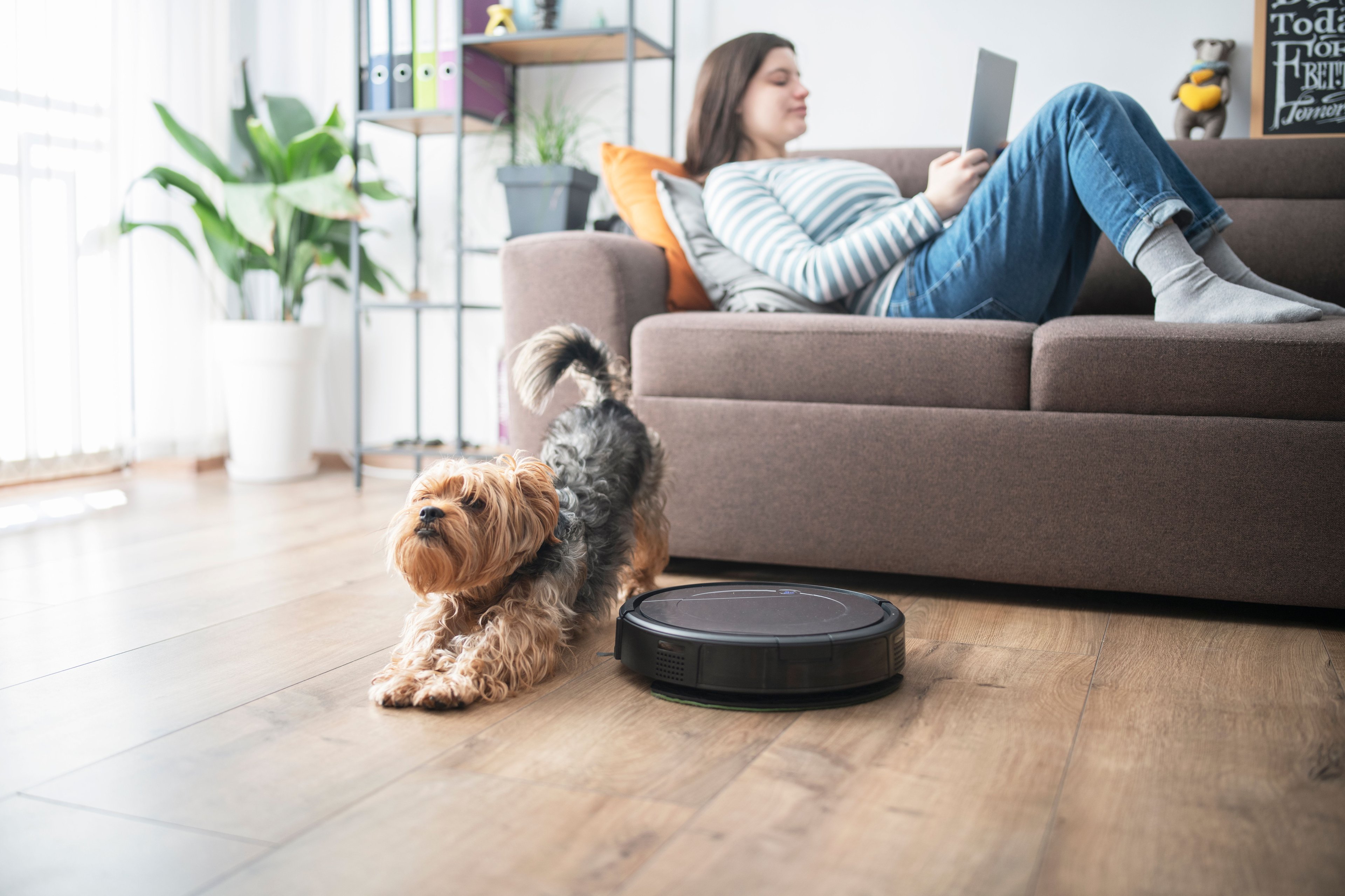It's still early to call robotic cleaning devices a staple of mainstream consumer electronics -- but the products are clearly more than just a fad today. iRobot (IRBT +0.00%), the company behind the market-leading Roomba vacuum franchise, just closed out a fiscal year that saw sales shoot past management's outlook. In even better news for shareholders, profitability inched higher despite surging price-based competition and rising costs.
These wins helped the company achieve robust earnings growth and its first $1 billion sales year, but CEO Colin Angle and his team have much bigger long-term aspirations.

Image source: Getty Images.
A good quarter and an even better year
Coming into the fourth-quarter report, there were many signs pointing to a strong sales performance over the holidays. iRobot trounced its growth targets in the third quarter, with revenue gains landing at 29% rather than the 19% forecast. Early demand looked encouraging for new products like the Roomba i7 Plus, too.
The company delivered on that promise as sales jumped 18% to $385 million in the fourth quarter. This boost powered full-year sales of $1.09 billion, which surpassed the high end of the upgraded guidance that executives issued back in October. The company shipped 1.5 million vacuum devices over the holidays -- up from 1.2 million a year ago -- with help from what management called "substantial demand" for its new product lineup that includes a self-emptying Roomba with upgraded room mapping capabilities.
Check out the latest iRobot earnings call transcript.
The company warned back in October that profits might be pinched by price-based competition over the holiday season and by increasing costs from tariffs. These trends didn't appreciably hurt its earnings power, though.
Gross profit margin improved to 48.5% of sales, in fact, from 47% in the same period a year ago. iRobot's average selling prices held steady at about $300 per unit. Finally, the company's operating income expanded for the quarter to reach nearly 10% for the full year compared to 8.3% a year earlier. That's an impressive performance for a year that many investors feared would show collapsing margins thanks to a flood of new competition in the industry.
Pressing its advantages and shoring up costs
The company's next fiscal year will include a mixture of offensive and defensive moves. iRobot aims to push the industry forward with new vacuum and mapping innovations to, as Angle put it in a press release, "solidify our position as the unambiguous leader in robotic floor care." It will pair those initiatives with expansion into new robotic maintenance arenas, starting with lawn mowing, that could dramatically boost its addressable market over time.
On the defensive side, the company is taking a hard look at its manufacturing and supply chain in a bid to lower costs and reduce exposure to tariffs that apply to imports from any single country. Success here should protect profitability while laying the groundwork for more sustainable earnings growth as its manufacturing footprint grows.
These initiatives will deliver sales of as much as $1.3 billion in 2019 and operating income of roughly $113 million, management says. That translates into revenue growth of nearly 20%, with earnings expanding at a slower 7% rate.
The wider outlook predicts lower margins on device sales as gross profit trends down to around 48% of sales through 2020 from nearly 51% last year. But iRobot is expecting cost moves to help overall profitability continue ticking higher into the low double digits. Hitting those ambitious targets would position the company for more market-thumping growth after having doubled its annual sales pace in just the past five years.






